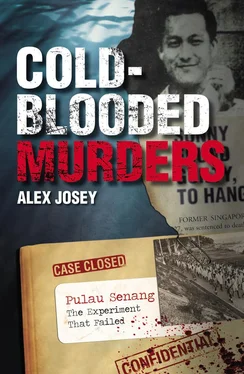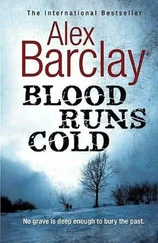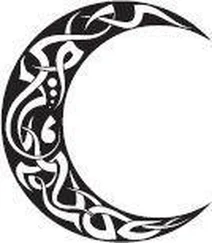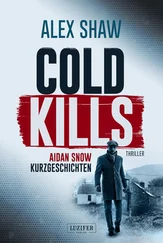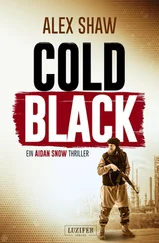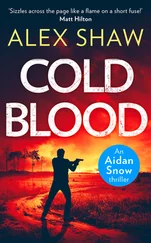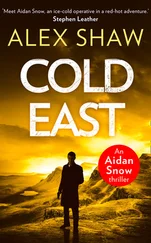Alex Josey - Cold blooded murders
Здесь есть возможность читать онлайн «Alex Josey - Cold blooded murders» весь текст электронной книги совершенно бесплатно (целиком полную версию без сокращений). В некоторых случаях можно слушать аудио, скачать через торрент в формате fb2 и присутствует краткое содержание. Жанр: Криминальный детектив, на английском языке. Описание произведения, (предисловие) а так же отзывы посетителей доступны на портале библиотеки ЛибКат.
- Название:Cold blooded murders
- Автор:
- Жанр:
- Год:неизвестен
- ISBN:нет данных
- Рейтинг книги:5 / 5. Голосов: 1
-
Избранное:Добавить в избранное
- Отзывы:
-
Ваша оценка:
- 100
- 1
- 2
- 3
- 4
- 5
Cold blooded murders: краткое содержание, описание и аннотация
Предлагаем к чтению аннотацию, описание, краткое содержание или предисловие (зависит от того, что написал сам автор книги «Cold blooded murders»). Если вы не нашли необходимую информацию о книге — напишите в комментариях, мы постараемся отыскать её.
Cold blooded murders — читать онлайн бесплатно полную книгу (весь текст) целиком
Ниже представлен текст книги, разбитый по страницам. Система сохранения места последней прочитанной страницы, позволяет с удобством читать онлайн бесплатно книгу «Cold blooded murders», без необходимости каждый раз заново искать на чём Вы остановились. Поставьте закладку, и сможете в любой момент перейти на страницу, на которой закончили чтение.
Интервал:
Закладка:
This Colombo Plan scholarship training programme started off with six selected students, but only four were to be chosen for advanced training to commercial pilot level in India. In terms of efficiency, as reflected in the number of hours registered to qualify for solo flying, Ang ranked fourth with 13 hours. But he was not chosen. The fifth student, with over 20 hours, was chosen in his stead. Ang was greatly disappointed: he considered it a gross distortion of justice. He was determined to go on with his training in Singapore, and his mother pawned her jewellery, and borrowed money to enable him to do this. By the time he was finally grounded in May 1959 he had completed 139 flying hours: it had cost his mother nearly $5,000.
Ang admitted to Dr Wong that he had been involved in a number of irresponsible flying incidents, such as skimming over the water and the tops of coconut trees. He would come down low over house-tops to salute friends or a relative, or to look at girls sunbathing on the roof-tops.
Ang also admitted with nonchalance that he was an inveterate liar. His arrogance and his conceit were noted by Civil Aviation officials and his flying instructor. Ang was also over-confident, which is a dangerous disposition in flying. These were in fact the reasons why Ang was not selected for further training to commercial pilot level: an arrogant, conceited, over-confident person, given to irresponsible behaviour, does not often make a good pilot.
Ang was grounded in May 1959 following an emergency landing. He misread a compass and had run out of fuel. At the inquiry he lied and said he had a bird in his engine. This inaccurate explanation was not accepted, and he was not allowed to fly again. He should never have been allowed to fly in the first place because of defective eyesight. A friend took the first examination for him. The second he passed by learning the eye-chart by heart.
His hopes to become a commercial pilot dashed, Ang returned to teaching for about a year. Early in 1960 he became a chicken farmer. He cleared the land, built cages and reared thousands of chickens, and ducks as well for a time. He managed to make about $300 a month, and the farm thrived except when an epidemic wiped out almost all his stock. But he carried on, in spite of a financial loss, and in 1964 he also began to plant tomatoes. He was still farming when he was arrested and charged with Jenny’s murder.
Ang’s sex life seems to have been normal, if enthusiastic. He confessed to getting several girls into trouble: some of them had abortions. He told one girl he wanted to marry her and he induced her mother to lend him various sums of money totalling between $6,000 and $7,000. Much of this money he spent on paying for a Sunbeam sports car which he drove in the 1961 Singapore Grand Prix. When the girl’s mother realized his duplicity she made him a bankrupt. He was so enamoured with another girl that he would talk to her on the telephone when she was away for as long as two and a half hours at a time. He ran up telephone bills of $500 a month. His diary revealed that he had to sell about 200 chickens to settle these bills.
Ang liked girls, but not alcohol, and neither did he gamble. He never frequented night-clubs and he did not know how to dance. All his life he had few friends. Ang was faddish about food. He would never eat pork, the favourite meat of practically all the Chinese. He would eat no other meat than the meat of a chicken.
He was egocentric and vain. His physical health and appearance meant much to him. He would keep fit with a careful diet and regular physical exercises including running. Pimples would seriously upset him. He paid careful attention to his teeth. He was dissatisfied with himself for not being taller than five feet and six inches. For years he tried courses to get taller. He tried to improve his memory and his command of the English language. He was constantly striving to improve himself, physically and mentally.
His fondness for cars led him into trouble. He stole between $6,000 and $7,000 from his father, making the theft appear as though an outsider had taken the money. The police dismissed this possibility and a detective followed him to a car dealer where he was seen to hand over money and take possession of a car. The following day the receipt arrived home. Despite all this evidence, he flatly denied that he had stolen the money. An angry, miserable father drove him out of the house. Sunny went calmly and stayed away for a few days, coming back when his mother forgave him.
He was a skilful and fast driver, though shortly after the 1961 Grand Prix, driving the same Sunbeam he had raced in that event, he killed a pedestrian. He drove the car on to a road island. He claimed he was avoiding the man who, he said, had suddenly stepped onto the road. The coroner returned an open verdict. Ang was subsequently fined $30 for negligence.
At home, Sunny was obedient and helpful to his mother. He was the odd-job man in the house. He was kind to stray cats and dogs. Even during his trial he was concerned for a sick dog on the farm, and from the prison gave detailed instructions for its proper care.
There is ample evidence to show that Sunny Ang’s lying and thieving began at about the age of 10. The thefts started in his own home, then the homes of neighbours, and eventually in shops in the city and society at large. He was in his teens when he bought a set of oxyacetylene cutting instruments to better equip himself for future burglaries; but he sold them before he could use them, to help a friend who had lost his bicycle.
He stepped up his burglary activities after he was grounded from flying. He chose shops in the main shopping centres which were empty at night; he abhorred physical violence. At 1:00 AM in the morning of 12 July 1962, he was caught trying to burglarize a radio shop. David Marshall, Singapore’s foremost criminal lawyer, defended him and successfully saved him from a prison sentence, Ang being placed on probation. Staring at Mr Marshall coldly and with disdain (when counsel had expected a smile and a sigh of relief), Ang walked out of the dock without a word of thanks. He had apparently expected to be acquitted. That night David Marshall said to his wife, “Today I got a man off, and for the first time in 25 years’ practice at the Bar I will live to regret it.”
On probation, Ang worked hard on his farm, though he exasperated his probation officer. He also took stock of himself. He had left school seven years and had achieved very little. He would like to study law, and was confident that he could get a degree within 18 months if he went to Britain for his studies: but he did not have a Higher School Certificate. Nor the money to travel. He now felt that he would like to do well in society. “If I cannot beat them,” he told the psychiatrist, and by ‘them’ he meant the police, society, “then I will join them.” He probably remembered the words of his father the very morning of the day he was arrested in the radio shop. “Do not underestimate the ability and the power of the police,” his father had warned him. Ang made inquiries at the University of Singapore, but met with no encouragement. He read law books in his spare time. And then, sometime in 1963, his father introduced him to a friend, an insurance agent. Sunny began to sell insurance policies. It was about then that he conceived the murderous idea of a quick way to raise money to finance his trip to England to get his law degree.
Dr Wong came to the conclusion that in the legal sense Ang was not of unsound mind. He had no psychotic illness or insanity. There was no defect in his reasoning. In the context of the M’Naughten’s Rules for Criminal Responsibility he would be considered fully responsible for his actions.
As Ang was a psychopath, Dr Wong felt that the abnormality of his mind would be such as to have substantially impaired his mental responsibility. On medico-legal grounds he recommended a reprieve, but hastened to add that, with the facilities available in Singapore at that time, he saw little hope for a cure for Ang. He felt that a sentence of life imprisonment for Ang, ‘with his superior intelligence and his almost classical degree of psychopathy’, should mean what it says. “He is a dangerous person, if released prematurely. Ang has said simply but significantly, ‘I would do it again.’”
Читать дальшеИнтервал:
Закладка:
Похожие книги на «Cold blooded murders»
Представляем Вашему вниманию похожие книги на «Cold blooded murders» списком для выбора. Мы отобрали схожую по названию и смыслу литературу в надежде предоставить читателям больше вариантов отыскать новые, интересные, ещё непрочитанные произведения.
Обсуждение, отзывы о книге «Cold blooded murders» и просто собственные мнения читателей. Оставьте ваши комментарии, напишите, что Вы думаете о произведении, его смысле или главных героях. Укажите что конкретно понравилось, а что нет, и почему Вы так считаете.
